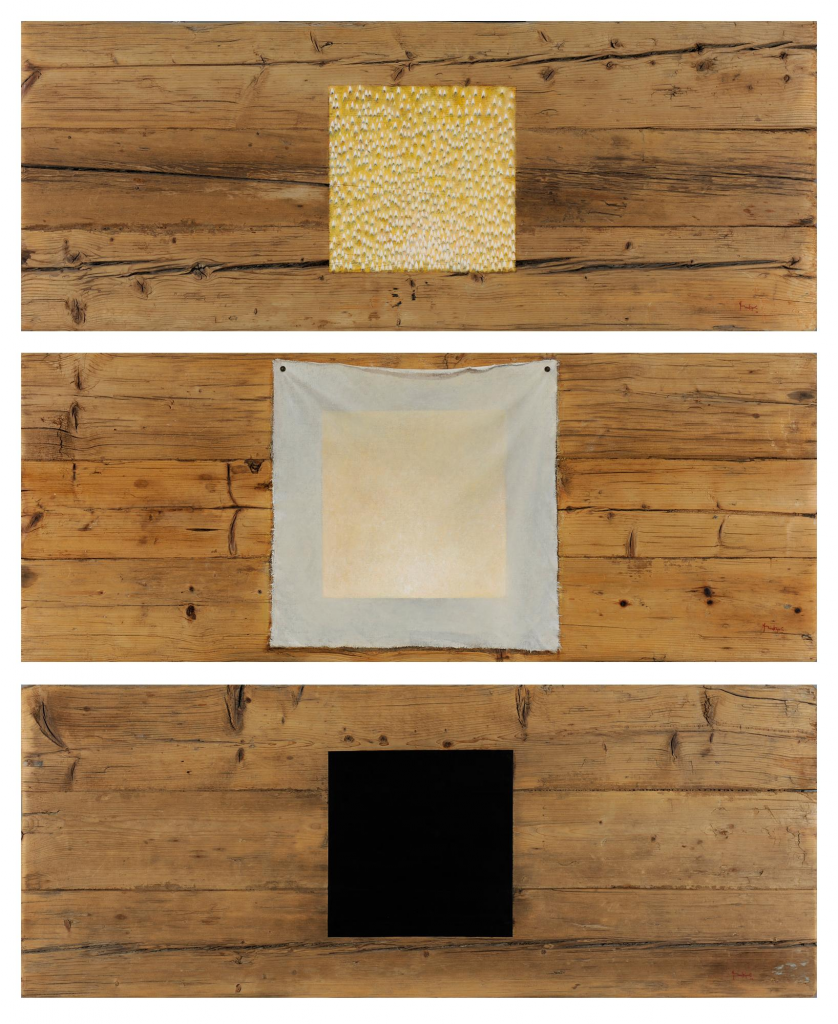Bokoros Christos (1956)
The Enigma of Parrhasius (triptych)
1. Floodlit Square, 2. The Curtain, 3. Black Square, 2000
Mixed Media, 150 x 129 x 7 cm
National Gallery, Inv. no. Π.10170
© 2015 National Gallery – Alexandros Soutsos Museum – Evripidis Koutlidis Foundation

The “Enigma of Parrhasius” could be read as a Plotinian allegory. The “Black Square” reminds us of lightless (Enneads II 4, 10, 19), undefined (I 8, 3, 16), formless (I 8, 3, 14) matter conceived of as the absolute absence of the One and the Good, “the great light” (IV 3, 17, 19). “The Curtain” evokes the body, which Plotinus compares to a garment covering the soul. Soul’s light is obscured by the body, but it is not extinguished: Soul never looses its connection with the intelligible realm, never entirely descents, even when our soul “sinks deep into the body” (IV 8, 2, 9) and “in matter” (I 8, 13, 23-24), just as a helmsman who, in a storm, is “dragged down with the wreck of the ship” (IV 3, 17, 25-26). Soul, “light from light” (IV 3, 17, 13-14), both a unity and a multiplicity of souls, naturally desires to return to its source, Intellect. Τhus, “stripping off what we put on in our descent” (I 6, 5, 12), our soul regains its original radiance, “the light of the virtues” (I 6, 5, 12), which shines out from the One and which could be thought of as being represented by the “Floodlit Square”.
“The wise men of Egypt, I think, also understood this, either by scientific or innate knowledge, and when they wished to signify something wisely, did not use the form of letters which follow the order of words and propositions and imitate sounds and the enunciations of philosophical statements, but by drawing images and inscribing in their temples one particular image of each particular thing, they manifested the non-discursiveness of the intelligible world, that is, that every image is a kind of knowledge and wisdom and is a subject of statements, all together in one, and not discourse or deliberation.” (Plotinus, Enneads V 8, 6, 1-9, trans. A. H. Armstrong)
